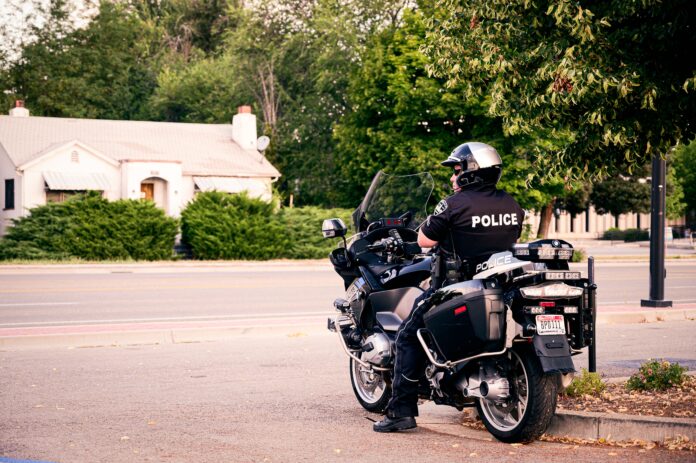
By Stacy M. Brown, NNPA Newswire Senior National Correspondent
A recent investigative report by the Howard Center for Investigative Journalism has shed light on the activities and influence of the Constitutional Sheriffs and Peace Officers Association (CSPOA).
Founded in 2011 by former Arizona sheriff Richard Mack, the CSPOA advocates for elected sheriffs to defy federal laws they perceive as unconstitutional or unjust.
The group’s teachings extend to opposing gun control laws, COVID-19 mandates, public health restrictions, and alleging election fraud.
While the CSPOA has sought mainstream acceptance by securing state-approved taxpayer-funded law enforcement training, critics warn that its ideology could undermine democratic processes.
“The sheriff is supposed to be protecting the public from evil,” Dar Leaf, the chief law enforcement officer for Barry County, Michigan, told researchers during a break in the National Sheriffs’ Association 2023 conference.
“When your government is evil or out of line, that’s what the sheriff is there for, protecting them from that,” said Leaf, who sits on CSPOA’s advisory board.
He added the group teaches that elected sheriff’s must “protect their citizens from the overreach of an out-of-control federal government.”
The sheriffs accomplish that by refusing to enforce laws they believe are unconstitutional or unjust.
“The safest way to actually achieve that is to have local law enforcement understand that they have no obligation to enforce such laws,” Mack told the researchers.
“They’re not laws at all anyway. If they’re unjust laws, they are laws of tyranny.”
Training and Spread of Ideology
Over the past five years, the CSPOA has organized training, rallies, speeches, and meetings in around 30 states, reaching law enforcement officers, political figures, private organizations, and the public.
In 13 states, formal training on the group’s “constitutional” curriculum was conducted for law enforcement officers.
Six of these states approved the training for officers’ continuing education credits.
The CSPOA’s efforts have found support from individuals sitting on state boards responsible for law enforcement training standards.
Controversy and Concerns
Legal experts have raised concerns about the potential consequences of such training on democratic processes and the broader political landscape.
The CSPOA’s curriculum heavily emphasizes the notion of sheriffs having the authority to interpret and refuse to enforce certain laws based on their constitutional interpretation.
Critics argue that this approach undermines the rule of law and could lead to conflicts between local, state, and federal law enforcement agencies.
“They have no authority, not under their state constitutions or implementing statutes to decide what’s constitutional and what’s not constitutional,” Mary McCord, a former federal prosecutor and executive director of the Institute for Constitutional Advocacy and Protection at Georgetown University, told the investigators.
“That’s what courts have the authority to do, not sheriffs,” McCord added.
“There’s another sort of evil lurking there because CSPOA is now essentially part of a broader movement in the United States to think it’s OK to use political violence if we disagree with some sort of government policy.”
Response and Impact
While some states, such as Texas, have canceled credits for the CSPOA’s training due to its perceived political content, other states, like Tennessee, have approved it, often citing its association with local law enforcement agencies.
The ideological reach of the group is evident as at least 69 sheriffs across the country have either been identified as members or publicly supported the CSPOA.
A 2021 survey revealed that over 200 responding sheriffs agreed with the group’s ideology.
Transparency and Operation
The CSPOA’s operations and financial details remain shrouded in secrecy.
Though it was briefly registered as a nonprofit organization, internal records indicate it now operates as a private company.
The group does not disclose its list of dues-paying members or specifics about its training programs.
Future Collaborations and Concerns
The investigative report highlights the CSPOA’s plans to collaborate with other organizations, such as True the Vote, which challenges the legitimacy of elections.
This raises concerns about potential conflicts from law enforcement officers embracing the CSPOA’s ideological stance.
While some states have embraced its training, others remain wary of its potential impact on democratic institutions and the rule of law.
The group’s activities and influence underscore the ongoing debate surrounding law enforcement’s role in upholding state and federal laws.
“This is kind of the tipping point,” Jon Lewis, a research fellow at George Washington University’s Program on Extremism, told researchers.
Lewis described the group as “insidious” and said it had become “mainstream standard-bearers for entrance into more violent forms of extremism.”
“Hundreds of sheriffs across the country have gained the trust of their locales and are now sitting in elected office,” he asserted. “Their training booklets from CSPOA right next to them. And I think that’s always going to be a pretty significant cause for concern.”


